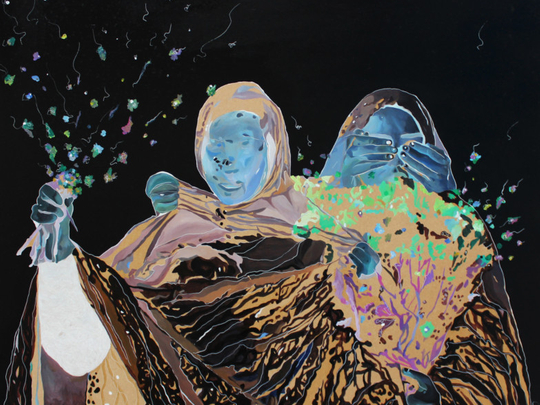
DUBAI An unlikely art campaign being launched at a Dubai gallery today seeks to raise awareness about “discriminatory” legal provisions in parts of the Arab world which it claims give men sweeping powers over their women’s kin “in blatant disregard of the constitution, international agreements on human and women’s rights and Sharia law”.
Named Abolish 153 after one such provision - Article 153 of the Kuwait Penal Code - the campaign will exhibit 40 powerful artworks from 11 regional artists at the JAMM Art Gallery in Dubai till May 8, gallery owner and director Lulu Al Sabah from Kuwait said.
“Our campaign aims to abolish Article 153 from Kuwait’s Penal Code, which effectively gives men regulatory, judicial and executive power over their female kin. The law states that any man who surprises his mother, sister, daughter or wife in an unsavory act with a man and kills her or him or both will be treated as committing a misdemeanor punishable by a maximum of three years’ jail time and/or a fine of Rs3,000 (225 dinars). Our aim is also to build coalitions to abolish similar laws across the region and create a safe environment where mothers, daughters, sisters and wives are protected from all forms of violence,” said Lulu.
She said, “Art is an effective medium to instigate social change, especially in environments where taboo topics are swept under the carpet. Art that tackles issues such as gender inequality, domestic violence, murder, adultery etc … can be portrayed in what appears to be ‘a safe field’, yet it allows for conversations, increased awareness and serious debate.”
She said all artworks have been created for the purpose of the exhibition: Farah Salem’s photographs that feature women trapped in boxes in various landscapes; Maha Al Asaker’s flowers and female forms that highlight female beauty and its fragility; Zahra (Zouz The Bird) Al Mahdi’s impregnation capsules with price tags underlining women’s rights to control their own bodies; and so on.











